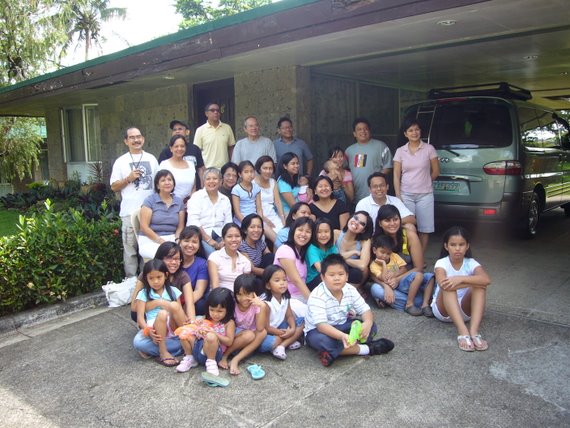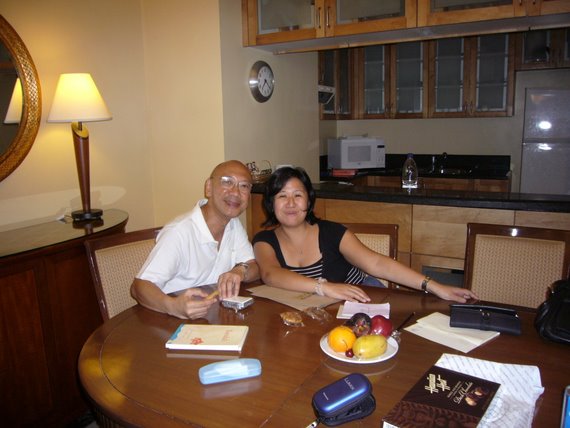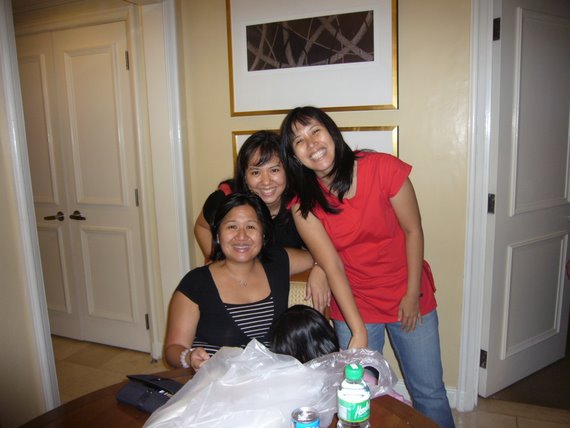Wild tales are essential reading, the stimulus of a developing imagination, a resource in the tedium of day-to-day existence, sparking lasting pleasure and keeping alive the crucial capacity to daydream."
- Charles Lamb, 1802
I ran into the greatest thing while I was shopping for Christmas gifts over the holidays, Tales from Shakespeare, a very old book by Charles & Mary Lamb, [an extraordinary brother and sister team - whose exploits actually deserve a separate entry]. As it always happens when I go shopping, I ended up buying this for the kids. It was days before our trip to Switzerland, and somehow, I had a vision of us reading Shakespeare and sipping hot chocolate in a log cabin while snow fell onto a gentle blanket outside.
Due to the fact that the Lauterbrunnen flat had not only cable but wireless, this did not happen as easily as I had hoped. Spongebob Squarepants, even in German, proved a mighty rival to the kiddies' attention, and the fact thaTt T and I had our own tomes in tow (Anne Enright's The Gathering and T's The Troublesome Offspring of Cardinal Guzman by Louis de Bernieres). Still, we managed to wheedle them away with promises of great action and drama in MacBeth, which both K and C enjoyed much more than I thought they would.
I had fully intended to continue our family forays into these wild tales as Charles Lamb calls them, once we got home, but discovered, much to my dismay, that the already beloved book was nowhere to be found.
"You must have left it at the house in Lauterbrunnen," says K placidly. I was disappointed, naturally. It had been a 10$ Puffin edition with a bright, green child-pleasing colour.
Last week, I went back to that particular bookstore in Plaza Singapura to re-purchase the book, and found they had run out of the ten dollar edition. What they did have was a rather adult Penguin edition for a formidable 21 dollars. The cover was dark, both in colour and in tone due to a rather frightening artistic rendition of MacBeth, which I knew would disturb my children's sensitive sensibilities. But I bought it, nonetheless. We now plan to follow MacBeth up with Romeo and Juliet. T would have liked to do Julius Ceasar, recalling his own youthful foray under the guidance of the beloved teacher Pagsi, but for some strange reason, the Lambs did not choose to retell this particular one.
I wonder rather nigglingly though whether it matters that my children will not be starting with Shakespeare itself, rather with these retellings, but am reassured both by my own experience and by the Lambs themselves.
After all, the first I ever knew of Shakespeare was through the plays I saw as a child with my parents - in Rolando Tinio's Teatro Pilipino in CCP's Little Theatre in Manila in the 70s. I have a vivid memory of my Tita Ella as Lady MacBeth. These productions were my first experience of Shakespeare, my stepping stones, and they were Tagalog translation.
Charles Lamb says in his preface, these retellings are intended as stepping stones to the plays themselves, but the stories themselves have powerful "ethical effect." And in whatever form, they are to be "enrichers of the fancy, strengtheners of virtue, a withdrawing from all selfish and mercenary thoughts, a lesson of all sweet and honourable thoughts and actions, to teach (you) courtesy, benignity, gernosity, humanity, for of examples, teaching these virtues, Shakespeare's pages are full." It's hard to argue with that.
I am reminded of mine and the Quintosian all-time favourite novel, A Tree Grows In Brooklyn, where the heroine, Francie's mother, Katie is advised to read to her children from infancy every day without fail, two pages a day each from the two best books in the world - the Bible and the plays of Shakespeare. By the end of the book, Francie and her brother Neely make it to college. Neely who doesn't even want to go to college, finds they are doing Julius Ceasar in his freshman english class and he knows it "backwards, forwards and upside down."
And I don't wonder that this isn't what led me to the idea of reading the kids Shakespeare in the first place.
Wednesday, January 16, 2008
Subscribe to:
Post Comments (Atom)
Kids on break

So what are you going to do about it?
Reminder: Buy fruit

Likewise, Quintosians rule

on with family business
FLASHBACK MANILA

Isang Sandali
Sisterhood rules

Here's to being the best we can be!
Apparently, this is me. Now which card are you?

You are The Wheel of Fortune
Good fortune and happiness but sometimes a species of intoxication with success
The Wheel of Fortune is all about big things, luck, change, fortune. Almost always good fortune. You are lucky in all things that you do and happy with the things that come to you. Be careful that success does not go to your head however. Sometimes luck can change.
What Tarot Card are You?
Take the Test to Find Out.
No comments:
Post a Comment